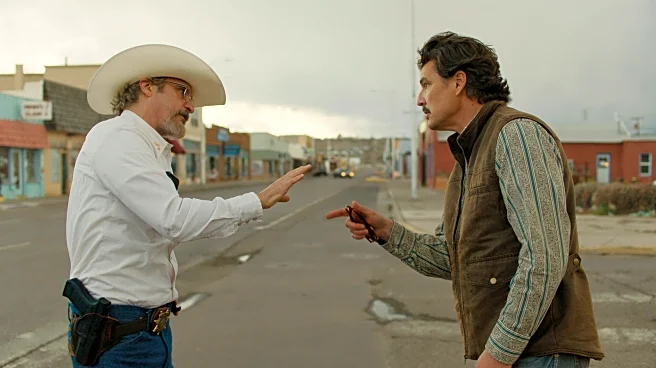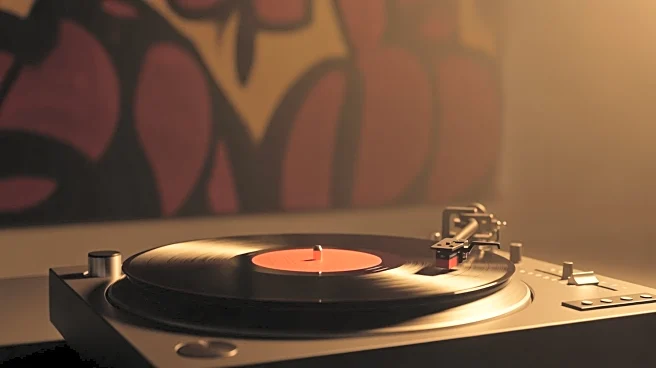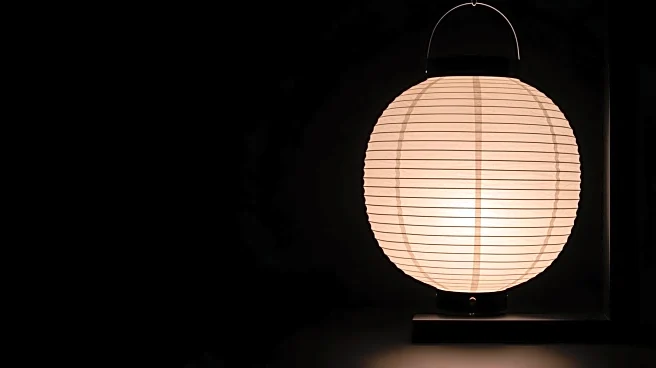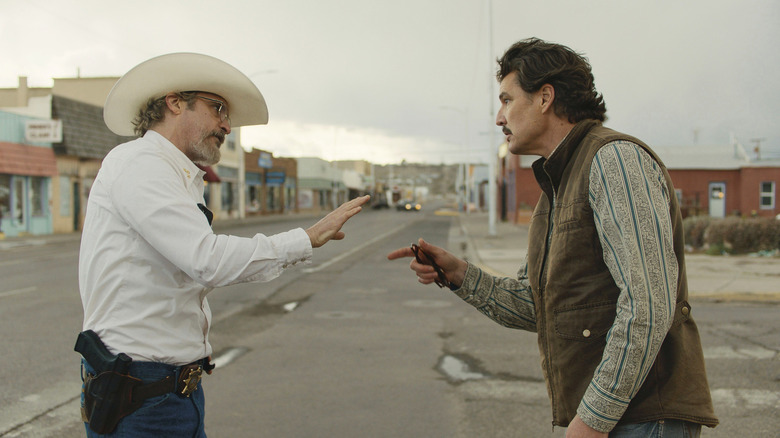
One of the boldest modern auteurs in cinema is Ari Aster. Aster first gained notice with "The Strange Thing About the Johnsons," his thesis short film while he studied at the AFI Conservatory. Shot on 35mm,
this short film provided viewers with an early showcase of Aster's fearlessness as a filmmaker, most notably his exploration of psychological horror within a complicated suburban family. Impressed by the short film, A24 greenlit "Hereditary" as Aster's feature-length directorial debut. Released in 2018, "Hereditary" became A24's highest-grossing film of all time, until "Everything Everywhere All at Once" broke the studio record in 2022. With his debut, Aster immediately captured the attention of cinephiles and critics alike thanks to his uncompromising vision and his willingness to challenge audiences.
Aster directed three more original projects, including the horror film "Midsommar," the surrealist dark comedy "Beau Is Afraid," and, most recently, the Western political satire "Eddington," all produced and distributed by A24. Although he initially attracted film enthusiasts with his hypnotic voice in the age of elevated horror, Aster has proven with his recent two projects that he is eager to tell original stories in different genres that are unequivocally from his imagination. In an age where many folks complain about constant sequels, reboots, adaptations, and cinematic universes dominating the multiplex, Aster's authorship continues to be an invaluable contribution to the medium today. Here is the filmography of the artist Martin Scorsese calls "One of the most extraordinary new voices in the world cinema," ranked.
Read more: The 10 Best Stephen King Books, Ranked
4. Beau Is Afraid
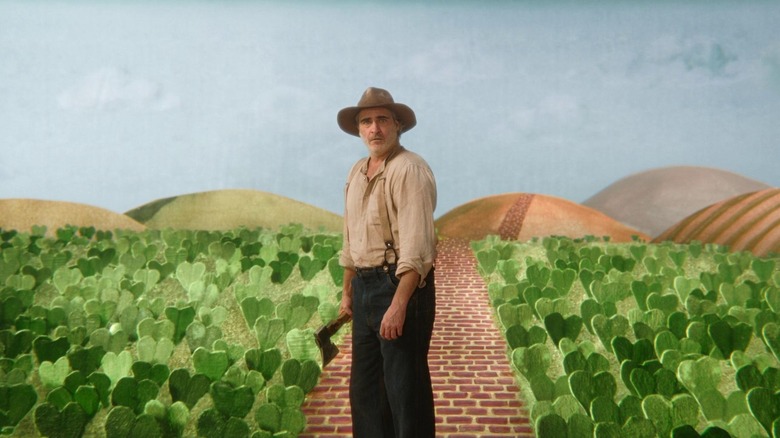
Ari Aster's one-two punch of "Hereditary" and "Midsommar" in back-to-back years is comparable to the likes of Quentin Tarantino's "Reservoir Dogs" and "Pulp Fiction" or, more recently, Ryan Coogler's "Fruitvale Station" and "Creed." Naturally, anticipation was building for what Aster's next project would be, especially when it was revealed that he would be working with Academy Award-winner Joaquin Phoenix as the film's lead. Four years after "Midsommar" entranced audiences, "Beau Is Afraid" hit theaters, testing the patience of its viewers as Aster's most abrasive film to date, which is why it is still worth watching.
A three-hour Kafkaesque surrealist journey, "Beau Is Afraid" brilliantly captures the excruciating pain of intense anxiety, beautifully brought to life with stunning cinematography, impeccable editing, and, above all, a masterclass performance from Phoenix. Aster was not afraid to upset viewers with his third directorial effort, intentionally leaving viewers uncomfortable from the very first frame, all the way up to its bonkers climax and ending, which features one of the most gnarly and disturbing images captured in cinema this decade.
3. Eddington
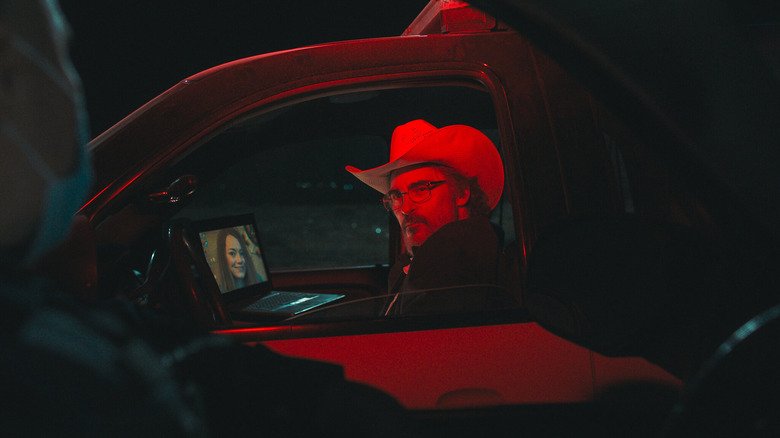
After making waves in horror and making a detour into deep surrealism, Ari Aster opted to tackle our current reality through the lens of a neo-Western political satire. "Eddington" takes viewers back to 2020 during the pandemic, an era that most of us would like to forget but which has irreparably damaged society worldwide. Aster dives headfirst into the powder keg of the American climate during that time, when culture wars regarding mask mandates and vaccine skepticism were at a fever pitch, coinciding with nationwide protests against police brutality and racial injustice following the murder of George Floyd.
Ari Aster successfully crafts a thoroughly engaging satire following an ensemble of characters within this titular small town, particularly with the political divide between Sheriff Joe Cross (Joaquin Phoenix) and Mayor Ted Garcia (Pedro Pascal). "Eddington" serves as a biting statement on how virtually every American is plagued by their social media algorithms, which entrench everyone into diametrically opposed realities, further driving communities apart. The tensions come to a head in the film's third act, leading to an unpredictable finale that is equal parts hilarious and tragic, serving as a scathing indictment of our egregiously stupid political era.
2. Midsommar
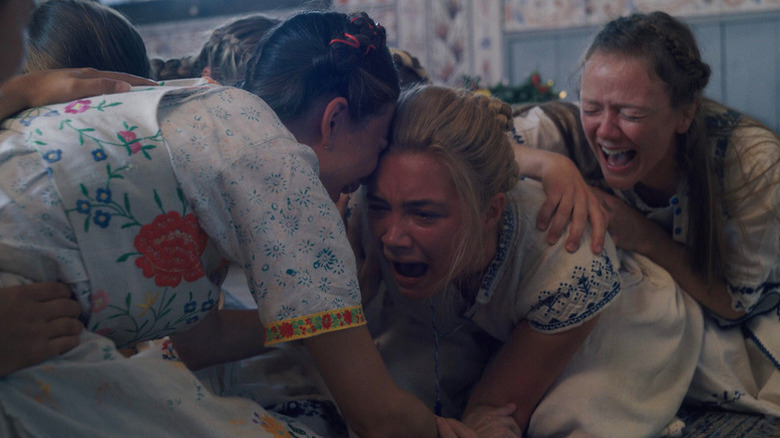
In 2019, "Midsommar" hooked horror fans with its hypnotic hellscape of psychedelics, festivals, and cults -- with nearly all of the frightening imagery captured in broad daylight. Ari Aster's sophomore effort is no slump, coming right out of the gate with one of the most disturbing opening sequences in the genre this century. Beautifully captured by Pawel Pogorzelski's euphoric cinematography, the visuals of the film's vibrant, sun-kissed Swedish village serve as a striking contrast to the grisly, violent imagery on display as our core characters realize they got more than they bargained for on their summer vacation.
At the center of "Midsommar" are Dani (Florence Pugh) and Christian (Jack Reynor) whose already-rocky relationship is put to the ultimate test during the nine-day midsummer festival. Just when you think things could not possibly get any worse for these two, Aster unravels the unsettling mystery behind it all, leading to one of the most cathartic conclusions for a protagonist in a horror film from the past 20 years. Pugh in particular stands out in perhaps her best performance to date, showing audiences some of the most visceral faces of abject terror ever captured on film. Friendly reminder: Do not relieve yourself on a sacred tree at a sketchy festival, because it will not end well for you.
1. Hereditary
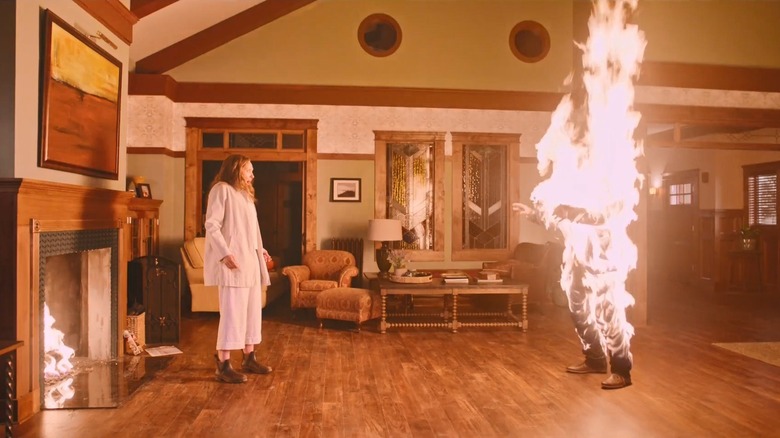
With an already-impressive career spanning four films over the course of seven years, Ari Aster's first film, "Hereditary" still reigns supreme as his best work to date. A further exploration into the complicated family dynamics seen in his short film, "The Strange Thing About the Johnsons," "Hereditary" meets the Grahams (sorry, Kendrick Lamar), a grieving family plagued by generational trauma with a history tied to a mysterious cult. A gripping family drama first and a skin-crawling, psychologically suffocating horror film second, "Hereditary" is a triumph of masterful genre filmmaking. It's one of the best directorial debuts of the century.
The Graham family is composed of a wonderful group of actors, with a respectable turn from Gabriel Byrne as Steve, a struggling husband and father. Alex Wolff successfully sheds his Nickelodeon child star image in a devastating performance as Peter, the troubled eldest child, and his sister, Charlie, is enigmatically portrayed by the unforgettable Milly Shapiro. However, Toni Collette's lead performance as Annie, the thoroughly devastated wife and mother, is a tour de force -- though she was woefully snubbed by the Academy Awards.
If you're looking for the easiest way to keep up with all the major movie and TV news, why not sign up to our free newsletter?
Read the original article on SlashFilm.
